|
Waiting in the Wings During the Roger Moore Years - Billington versus Warbeck
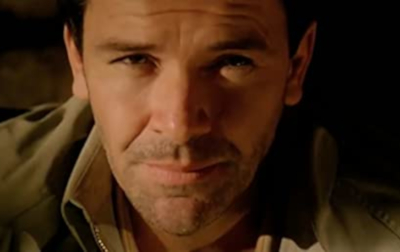
Roger
Moore completed his three film Bond contract after production ended on
The Spy Who Loved Me. After this Roger's appearances as Bond were
negotiated on a film by film basis. Roger and Cubby Broccoli would
basically play a game of bluff with one another before each film. Roger
felt he wasn't paid enough and Cubby thought he was asking for too
much. Despite these divergent positions though the two always remained
friends and always seemed to manage to strike a last minute deal for
Roger to come back.There was a
curious subplot around the time of The Spy Who Loved Me because now
that his ten year embargo on remaking Thunderball was up, Kevin McClory
announced plans for his own Bond film - which was to be titled Warhead.
In May 1976, Kevin McClory took out an advert in Variety in which he
said production on Warhead would begin in February 1977.McClory wrote
Warhead with the thriller writer Len Deighton and none other than Sean
Connery.Sean Connery was said to
have found it amusing that Ian Fleming - the ultimate English
establishment figure - lost his legal case in an English court to an
Irish outsider like Kevin McClory. This is presumably one of the
reasons why Connery liked McClory and was now knocking about with him
writing a rival Bond film. Not only was McClory and Warhead a means for
Connery to get back at Cubby Broccoli, Connery also admired McClory's
plucky underdog status in the movie world.In
Kevin McClory's aborted 1977 Bond film Warhead, the story had Blofeld
stealing nuclear weapons in order to blackmail the United Nations into
handing over control of the world's oceans to SPECTRE. The temporary
headquarters of SPECTRE in Warhead was going to be inside the Statue of
Liberty. There's a curious contradiction with Sean Connery's attitude
to Bond in that he always expressed his displeasure with the escalating
hardware and gadgets on his own Bond films and yet when he was a story
consultant on Kevin McClory's Warhead the resulting story treatment was
very fantastical and hardware heavy with robotic sharks and all manner
of outlandish mayhem.There was
never any confirmation about who would have played James Bond in Kevin
McClory's Warhead film but it seems very unlikely that Sean Connery
wouldn't have been tempted in the end. Who else could have done it?
It's hard to think of any alternative (and plausible) option in 1977
who would have had the stature of Connery. The only people with the
stature of Connery would have been Hollywood stars like Clint Eastwood
and Robert Redford and they definitely wouldn't have been interested.Cubby
Broccoli naturally threw every legal obstacle at his disposal at
Warhead to block McClory's film. McClory in turn took legal action over
EON using SPECTRE in their movies. McClory argued (and not unreasonably
too) that SPECTRE was a creation of the movie script he had written
with Fleming all those years ago. The resulting legal quagmire not only
torpedoed any plans EON had to use Blofeld in The Spy Who Loved Me but
also any chances of Warhead going into production. In the end Sean
Connery got tired of the legal wrangles and walked away. For now at
least, Kevin McClory had been thwarted in his unofficial Bond ambitions.Though
Roger Moore was no spring chicken in the last phase of his tenure as
Bond he was popular with audiences (ignore lazy retrospective articles
which try and tell you that Roger Moore was hopeless as Bond - he
impossibly made the part his own after Connery) and pleasant and
professional to work with. For this reason EON were always reluctant to
part company with Roger. There were though, given Roger's age and film
by film arrangement, plenty of potential Bonds waiting in the wings
during his era in case he didn't come back. In fact, Cubby would often
openly test actors as a way to put pressure on Roger to make a decision.The
suave English actor Michael York wrote in his autobiography that after
the financial success of the 1976 sci-fi film Logan's Run he was
approached by Cubby Broccoli and asked if he would be interested in
playing James Bond. York said that while he was flattered he didn't
think he was right for Bond. It appears that Cubby was sounding out
potential Bond candidates from the late seventies onwards in case his
film by film arrangement with Roger Moore should run into obstacles.
York was in his early thirties and a pretty big star at the time. He
had recently played D'Artagnan in Richard Lester's films The Three
Musketeers and The Four Musketeers. York was a reasonable candidate
although he might have been a little too posh and heritage for the role.Was
Michael Petrovitch a vague Bond candidate in the seventies? Petrovitch
was born in 1945 and a suavely sinister looking actor who scrubbed up
well in a tux. His first credits were in Department S and Jason King.
Petrovitch looked somewhat Bondian in the 1972 film Neither the Sea Nor
the Sand and the 1973 compendium horror Tales That Witness Madness. He
later appeared in television shows like Poldark and The Professionals.
Petrovitch moved to Australia for a time and appeared in an eclectic
stew of Aussie projects spanning from the cosy soap A Country Practice
to the violent Ozploitation film Turkey Shoot. Petrovitch was someone
that EON noticed but he doesn't ever appear to have been a serious
candidate. On the evidence of Turkey Shoot, Petrovitch didn't age very
well and by the 1980s had already lost the suave looks that won him
parts in the early seventies.Martin
Shaw, who played Doyle in the popular action TV show The Professionals,
has said he was invited to become a James Bond candidate in the late
seventies. Shaw would have been in his early thirties at the time.
"They asked me way back to do a screen test for James Bond," said Shaw.
"I said no. I just didn't want to play him because it dominates
everything you've done or go on to do. I was having dinner with the
daughter of Cubby Broccoli. This was about 1978. She'd seen me in The
Professionals and begged me to do a screen test. She was astonished
when I said no thanks. Although, in retrospect, it might have been a
good idea to have had a go at it."Martin
Shaw feels like a less obvious Bond candidate than his Professionals
co-star Lewis Collins. While he was a good actor and quite good
looking, Shaw was more of a television actor (he has done very few
films) and there is no evidence that he had the charisma and presence
to carry a movie. At least with Lewis Collins we have Who Dares Wins
and those German/Italian action films he made as evidence that he could
headline an action flick. Shaw was also one of those people who looked
better when they got older. Martin Shaw was very handsome with silver
hair when he became mature but he could sometimes still look a little
goofy at times when he was younger. Martin Shaw's fate was to be
typecast as policemen on television but he's had a great career
nonetheless with plenty of impressive stage work too.Patrick
Mower claims that after Roger's third Bond (The Spy Who Loved Me) he
was brought in to do an audition because Cubby wasn't sure that Roger
would be back. "They thought he was too old to do another three films
and he hadn't signed his contract," said Mower. "So they tested me
again. But then Roger signed his contract." Around this time Mower was
appearing in the cheapjack and largely forgotten police television show
Target. He would have loved nothing more than to land James Bond.Michael
Billington was still very much in the loop. Billington had played a
small role (as the doomed Soviet agent Sergei) in the PTS of The Spy
Who Loved Me. Billington's role as Sergei is the closest we ever got to
seeing him as Bond - although he said that he did not play the
character in the same way he would have played 007. "I knew that if I
did it, it might prevent me from doing Bond in the long run," said
Billington, "but I thought “Why not?” A couple of weeks skiing and Bond
was only a picture or two from demise anyway, or so I thought, “What
did I care?” My choice was should I try and play it like Bond? I
decided to go the anti hero route, darker inside." Billington actually
looks a lot like George Lazenby in the The Spy Who Loved Me PTS. He had
a very Bondian sort of look with the right toupee.When
EON were testing actresses for 1979's Moonraker, Michael Billington was
brought in to play Bond in the auditions against prospective leading
ladies. Billington said that after the auditions, the director Lewis
Gilbert told him he could and should play Bond in the next picture.
Billington was invited to dinner with Cubby Broccoli after the
auditions and became close to Cubby's young daughter Barbara. It seemed
that Michael Billington was still very much in pole position to be the
next Bond. He was essentially sitting on the substitute's bench waiting
to be called onto the pitch at any moment. Billington's chances though
were contingent on Roger Moore standing down sooner rather than later.
Billington was nearly forty now and wasn't going to be a Bond candidate
forever.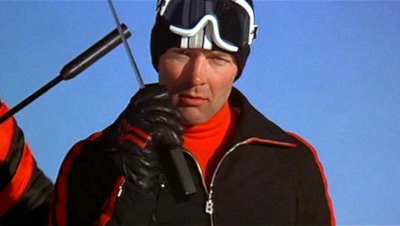 It
was at the end of the seventies when Timothy Dalton got another brush
with potential Bondage (if you'll pardon the expression). He was in his
early thirties at the time. Dalton now seemed to be very much on the
radar of Cubby Broccoli. Broccoli always kept a close eye on the male
acting pool in Britain lest he should need a new Bond again. Truth be
told though, Cubby was naturally a loyal and conservative man when it
came to casting. The Bond films were doing perfectly well at the
box-office with Roger so Cubby saw no reason to make a change if he
could avoid it. When there was a mild uncertainty over Roger Moore's
future participation in the franchise after Moonraker, it appears that
Timothy Dalton was someone that Cubby Broccoli had on his list of
potential replacements. However, Dalton was apparently not that
enthused by the prospect at the time."There
was a time in the late 1970s," Dalton later confessed in the book The
Incredible World of 007, "when Roger may not have done another one, for
whatever reason. They were looking around then, and I went to see Mr
Broccoli in Los Angeles. At that time, they didn't have a script
finished and also, the way the Bond movies had gone - although they
were fun and entertaining - wasn’t my idea of Bond movies. They had
become a completely different entity. I know Roger, and think he does a
fantastic job. He was brilliant. Roger is one of the only people in the
world who can be fun in the midst of all that gadgetry. But the movies
had gone a long way from their roots; they had drifted in a way that
was chalk and cheese to Sean. But in truth my favorite Bond movies were
always the first three."Timothy
Dalton had spent the seventies working on the stage and modestly
carving out a career in film and television. Strangely though, despite
his dashing good looks and acting chops, Dalton never really threatened
to become a star in the seventies. He appeared in Play For today, a
Dirk Bogarde espionage caper called Permission To Kill, and an obscure
Spanish film called The Man Who Knew Love. By the end of the decade,
Timothy Dalton's screen career seemed to be going nowhere in
particular. He infamously appeared in the eccentric Mae West megabomb
musical comedy Sexette. His other roles included the TV miniseries
Centennial and Dalton also appeared in the popular TV show Charlie's
Angels as the dashing Damien Roth. The one bright spot was Agatha - a
decently reviewed 1979 drama about Agatha Christie's famous 11-day
disappearance in 1926. Dalton played Archie Christie in a cast that
included Dustin Hoffman and Vanessa Redgrave.After
the release of Moonraker in 1979, there was a lot of doubt in the
entertainment world that Roger Moore would be back for a fifth film.
Roger himself seemed to cast doubt on his participation in the next
Bond adventure. Roger was in his fifties now and although Moonraker was
a big financial success there was a sense that the franchise could do
with a slight course correction and come back down to earth somewhat.
The most logical way to do this was cast a new actor and begin a new
era. This is essentially what EON planned to do at the time. In 1980,
EON brought David Warbeck back for a three day screen test. Warbeck was
39 years-old and at the start of his Italian horror and 'Macaroni
Combat' phase. Warbeck would become something of a cult B-movie horror
and action star in Italy. In the Billington v Warbeck battle of the
reserve Bonds it appears there was a very brief window in time here
where Warbeck edged his nose in front.According
to David Warbeck, he was selected to play Bond in the next film and
John Hough (director of films such as The Legend of Hell House and
Escape to Witch Mountain) was to direct. "I can't recall what titles
they were," said Hough. "What happened was that Roger Moore had entered
into dispute with Cubby Broccoli over salary and this was something
that was documented in Variety and the trade papers and Roger was
looking for a hike in pay, and so, had decided that he wouldn't play
Bond again unless he was paid an increase in salary. At this point the
Bond company had decided they wouldn't do that and they would go with a
new James Bond and a new director. They choose an actor called David
Warbeck who was secretly tested. I had directed David Warbeck in a film
called Wolfshead (aka Wolfshead: The Legend of Robin Hood), which is a
very highly regarded little film."Cubby
Broccoli had seen this and had decided that if David Warbeck got to
play James Bond then I would get to direct Bonds. In fact, they did a
two picture deal with me because they were going to do two James Bonds,
back-to-back. The idea was, at that particular point, they wouldn't do
just one James Bond at time but we were going to do two at a time. And
so, two directors would both alternate and do a Bond each and the whole
thing was pretty much set up. But before David Warbeck got the chance
to sign the contract, Roger Moore had decided that he would go ahead
and take the deal that was on the table. I knew that he and I would
never work together because we had a dispute on the Saint TV series and
we weren't compatible. * The chance never arose past that point."The
Hough/Warbeck concept is sort of confusing in that Warbeck's test was
directed by John Glen - who ended up directing the next film. Were
Hough and Glen supposed to alternate on directing Bond films? David
Warbeck said his proposed Bond film was nixed by a financial crash.
This could be a reference to the failure of Heaven's Gate proving to be
a box-office disaster for United Artists in 1980. In his memoir, Cubby
Broccoli said that United Artists were very pro-Roger moore when it
came to the James Bond franchise in the early 80s. They felt that Roger
was popular and established in the role and saw no need to make a
change for the time being.Of his
1980 Bond audition, Warbeck said - "It's ironic that I was actually
contracted to be the new Bond and my director was going to be Johnny
Hough, because I had chats with Broccolli and said no, I didn't want to
work with John Glen, because I have this problem with directors. John
Glen and Martin Campbell, well the younger Martin Campbell were sort of
similar in that they just didn't share my sense of humour and my sense
of humour is based on experience and it's based on visual gags. For
example, when I did the Bond bits with John Glen, there was a sequence
where somebody sticks a gun in my back while I'm on the telephone and I
thought it would be a great visual gag if when he says “put your hands
up” you've still got the telephone in your hand with the cord attached.
And so you whack him with the telephone and then you try to strangle
him with the cord while the person on the other end is still talking!
You see what I mean? It would have been a good visual as well as well
as plot gag, but John Glen wouldn't see that."David
Warbeck said that his extensive screen test was at Pinewood with
elaborate security. It was all very hush hush. The odd thing about
Warbeck becoming the new Bond at that time is that his career was
floundering somewhat and he still wasn't very well known - although of
course Bond actors tend not to be tremendously famous when they are
cast. EON have never cast an A'list star as Bond and probably never
will. It actually tends to help if the new Bond actor isn't that well
known because then it's easier for the audience to simply accept them
as Bond. This is why, to give an example, many believe that Henry
Cavill's future Bond hopes became more remote when he was cast as
Superman.Around the time of his
Bond screen test for John Glen, Warbeck had just appeared in a film
called The Last Hunter (L'ultimo cacciatore). The Last Hunter is a sort
of bargain basement Italian blend of The Deer Hunter and Rambo (though
it of course pre-dates the Rambo films) and has Warbeck as Captain
Henry Morris - a soldier who goes on a deadly mission behind enemy
lines during the Vietnam War. Warbeck is actually quite a commanding
and macho presence in this blood drenched nonsense though he does seem
to be losing his hair so one suspects that a Connery style toupee might
have been put on order had he got the 007 gig. Warbeck is also very
thin and looks like he could do with a bit of gym time and a few square
meals.Warbeck was in the cult
horror film The Beyond in 1981 and then made Hunters of the Golden
Cobra. Hunters of the Golden Cobra is a cheapjack Italian version of
Raiders of the Lost Ark and Warbeck is actually quite James Bondish in
this. His acting style is a sort of likeable mix of Roger Moore and
Lewis Collins and Warbeck does look the part of 007 - especially when
he is clad in an all black outfit of the type that Roger Moore had on
near the end of Live and Let Die. Warbeck was also rather James Bondish
in the 1982 Italian action film Tiger Joe and 1984's The Ark of the Sun
God (another low-budget Italian riff on Indiana Jones).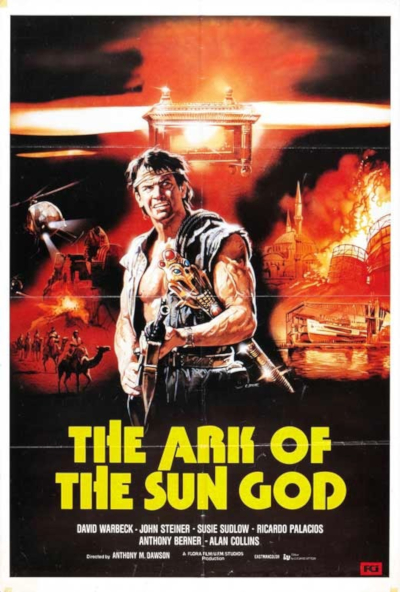 In
1984, Warbeck was in an episode of the popular British comedy drama
show Minder and played a snooty man who crosses swords with George
Cole's Arthur Daley over some antique furniture. This episode of Minder
showed that Warbeck was certainly refined and suave enough to be Bond -
although by 1984 his 007 dream was fading fast. Warbeck usually imbued
his characters with a tongue-in-cheek sort of humour and no doubt would
have done this had he played Bond. You could maybe argue then that
Warbeck perhaps wouldn't have been a big enough departure from Roger
Moore. Warbeck's Bond definitely would have been funny but was this
really what the series needed at the time? To be fair to Warbeck though
he was capable too of bringing a certain world weariness to his
characters.The next Bond film was
of course settled as For Your Eyes Only with John Glen in the
director's chair for the first time. Glen said that they tested
numerous actors because they presumed Roger wasn't coming back. "To be
honest I did want to make another film," said Roger Moore of this
uncertain period. "This was all part of the bargaining ploy on EON’s
side - let it be known they were testing others so I’d take the deal on
the table for fear of losing the part. Fair enough, we all enjoy a game
of poker. I’m quite principled about not undervaluing my worth. If
someone wants me for a job then I believe they should pay me a fair
fee. My agent usually haggles it up a bit, the producer usually haggles
it down a bit and a happy middle ground is found. If someone
undervalues me, I simply walk away. I have no qualms about it."One
actor who EON cast their eye over during this period is Nicholas Clay.
His most notable role was around this time was as Lancelot in John
Boorman's Excalibur. It could be that Clay was looked at after this
film came out - which would mean he was considered for Octopussy rather
than For Your Eyes Only. Clay was very handsome and very posh. He
looked the part but you wouldn't say he was the most natural actor in
the world. I shall forever remember Nicholas Clay for a fascinatingly
bizarre episode of Hammer House of Mystery & Suspense where he
plays a man who finds himself trapped in his house with his family when
a mysterious and impenetrable wall suddenly encloses their home! Around
this time Clay also made the enjoyable Agatha Christie adaptation Evil
Under the Sun for director Guy Hamilton.Anthony
Andrews is often cited as someone who EON looked at for Bond in the
eighties. This is hard to verify as Andrews has never mentioned it
himself. Besides, Andrews was someone who tended to prefer the stage to
films or commercial projects. Andrews turned down the lead role in the
1982-1987 TV show Remington Steele because he didn't want to move his
family to Hollywood. He was replaced by a young unknown actor called
Pierce Brosnan. One other notable thing about Andrews is that he was
originally cast as Bodie in the TV show The Professionals but fired
after four days because he wasn't tough enough and too similar to
Martin Shaw (who played Doyle). Andrews was of course replaced by Lewis
Collins. Though he is a very good actor, Andrews feels too light to
have been Bond. You can't really see him beating people up with
cinematic verisimilitude.Michael
Jayston has claimed that he was one of the actors who was lined up to
replace Roger Moore in For Your Eyes Only. Jayston had recently
appeared in the TV miniseries Tinker Tailor Soldier Spy. His film roles
included Cromwell, Tales That Witness Madness, and Zulu Dawn. Jayston
was 45 though so rather knocking on a bit to be making his Bond debut.
Though a crisp and polished actor, Jayston wasn't the most screamingly
Bondian actor in terms of looks. Jayston would have been a more
credible 007 candidate in the early seventies rather than the early
eighties. Interestingly, Jayston claimed that one of the actors he was
competing with for the part of Bond in For Your Eyes Only was Patrick
Mower. If true, this would surely rank Mower up there with Warbeck and
Billington when it came to enduring and perenial Bond candidates. Mower
was now in his early forties and about to shoot a part in the detective
series Bergerac.When they began
pre-production on For Your Eyes Only, stuntmen with black hair were
hired because they assumed they were getting a new Bond actor. When
Roger came back at the last minute they had to let the black-haired
stuntmen go and replace them with fair-haired ones! Because it was not
known if Roger Moore was coming back, For Your Eyes Only was written in
a rather generic way when it came to James Bond in the film. The
opening scene where Bond places flowers on his wife's grave was written
to connect a new Bond actor to the history of the franchise. Although
the game of bluff over Roger's salary became a familiar preamble to
each new Bond film it does appear as if went down to the wire on For
Your Eyes Only. We could very nearly have had a new Bond actor on that
film.The actor who came the
closest to becoming the new Bond in For Your Eyes Only was (no great
surprise here) Michael Billington. Billington was still very much in
the loop and still close to the Broccoli family. Michael Billington was
flown to Corfu lest Roger should not return. He was put in a tux (and
later a black polo neck) and given a Bondian photo shoot. Billington
still looked good and would have made a credible and competent Bond had
they needed a fresh last minute 007."Time
passed and For Your Eyes Only was on the horizon," said Billington. "By
this time the ‘usual suspects’ were gone. John Glen was at the helm;
script by Richard Maibaum, close to retirement and Michael G. Wilson, a
lawyer by profession. The sharp and witty Christopher Woods dialogue
was sadly no more. The troops were gathering to go to Corfu to begin
filming but Roger was being coy. I think the money was an issue. Cubby
had me fitted out with wardrobe and flew me to Corfu. We had a picture
shoot." Once again, Roger Moore decided to come back and Billington
wasn't required in the end. Billington's enthusiasm for Bond - if his
website (where he shared his memories of his acting career and brush
with Bond fame) is anything to go by - seemed to be on the wane by this
point. He said he didn't like For Your Eyes Only very much when he
watched it.One of the cast
members of For Your Eyes Only was the Australian actress Cassandra
Harris as Countess Lisl von Schlaf. Harris had recently got married to
a young Irish actor named Pierce Brosnan. At the time, Brosnan's
credits only amounted to small roles in The Long Good Friday and The
Mirror Crack'd. During the production of the film, Cassandra Harris
introduced Brosnan to Cubby Broccoli and Broccoli immediately made a
mental note of Brosnan as a potential future Bond. Brosnan was dark
haired, tall, very handsome, and very charming. Cubby thought that if
Brosnan could polish up his acting skills he'd make a perfect James
Bond in the not too distant future.* The above article is an excerpt from the book The Actors Who Could Have Been James Bond.
Buy in the US
Buy in the UK
© 2022
Alternative 007
|
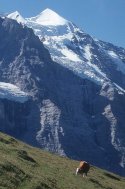
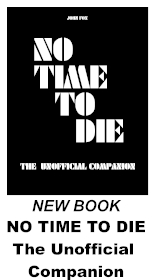
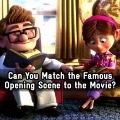
|






